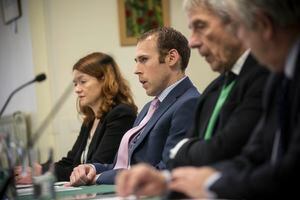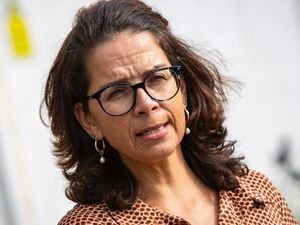Tribunal of inquiry into ESC conduct rejected by States
STATES members have rejected holding a tribunal of inquiry into the conduct of Education, Sport & Culture over its handling of the head of curriculum and standards appointment.

But that does not mean an end to any possibility of an investigation. Scrutiny president Chris Green said after debate: ‘We’ll now meet and decide on whether we run an independent review or do our own.’
It came as it was confirmed in debate that the population management administrator was investigating whether there had been a breach of the law in making the application for the post which would have declared no suitable on-island candidates were available.
Former Education member Deputy Carl Meerveld confirmed that, as well as the fact that he had refereed the matter to the Head of Law Enforcement and that a Code of Conduct panel will investigate whether there have been any breaches by the committee.
Controversy has surrounded the appointment following a string of revelations in the Guernsey Press about how it was handled.
A local candidate that was initially selected and accepted the job later withdrew and there have been allegations of unacceptable political interference in the appointment process after publication of a leaked email sent by Deputy Fallaize.
Scrutiny had proposed a tribunal of inquiry, which could have cost up to £250,000, in a bid to restore public confidence in States procedures.
But an eleventh-hour amendment was placed successfully yesterday in an effort to derail that proposal, and members then went on to reject the amended propositions.
Scrutiny is at liberty to proceed on an investigation of its own, but has warned repeatedly that it does not have powers to compel witnesses to attend or to get hold of unredacted material.
The amendment by Deputy Emily Yerby was passed by 16 votes to 15 with eight abstentions, while the amended proposals were lost by 14 votes to 13 with 12 abstentions.
The States heard concerns about the costs and how long it would take to hold a tribunal with fears it could run into the election.
Deputy Green had opened debate by stressing that only an independent and transparent inquiry would restore confidence in the government of Guernsey.
He said it was important that it was conducted by an independent panel that would be appointed by the Royal Court.
‘In my opinion this is an opportunity for the States to lance the boil of this issue,’ he said.
SMC’s policy letter was a last minute addition to this month’s agenda, but Deputy Green asked for it to be debated ahead of the propositions from Education, Sport and Culture for its new school plans.
Deputy Heidi Soulsby was concerned about how long the inquiry could take, given that the last time such a tribunal had been held it took 10 months to reach a conclusion.
She also criticised the anticipated cost, saying that Health and Social Care would have been grateful to know that there was a ‘spare’ £250,000 available.
‘This is something that falls fairly and squarely onto the SMC,’ she said, and the way the committee was constituted was meant to ensure that it was independent.
Deputy Soulsby was also concerned about the terms of reference being too tightly defined. This was shared by former Education president Deputy Paul Le Pelley, but while he said there were other areas that could be looked into, he nonetheless supported the call for a tribunal.
SMC member Jennifer Merrett said the committee did not currently have the power to compel witnesses to attend any review, but a tribunal would.
It was mid-afternoon when Deputy Yerby, backed by Deputy Ferbrache, placed an amendment that kept the thrust of the proposition, but replaced the tribunal of inquiry with the SMC itself, with costs being left to ‘an appropriately detailed financial request’ from the committee.
Deputy Green opposed this on the grounds that the SMC did not have the powers he felt were necessary, and also that it could take longer than the tribunal and perhaps cost much the same by the time it reached a conclusion.





